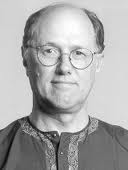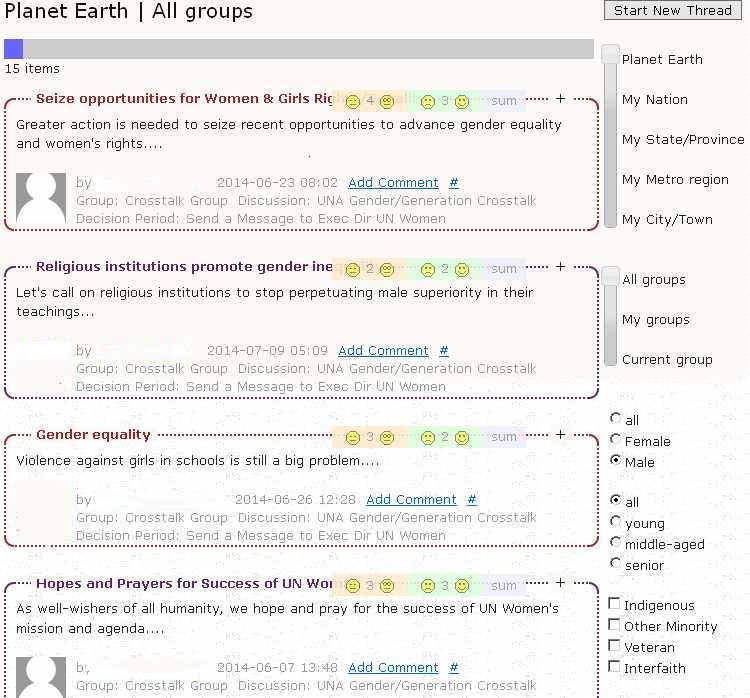The Big Picture
On the positive side, humanity is experiencing a welcome long range trend towards greater understanding, acceptance and even compassion. Literacy rates are going up. Living conditions are improving generally with proportionally more people being healthy and having to worry less about where the next meal is coming from. But this overall improvement is fueled by unsustainable economic practices. Through a combination of population growth, an ever more powerful technology, and a mistaken belief that we are separate from the natural world, humanity has overstepped Nature’s limits.
We need to leverage our intelligence and our growing sense of common humanity for a transition to a sustainable world. The great obstacle to our accomplishing such a transition is our appalling lack of unity. The nations of the world spend some 1.8 trillion dollars annually on arms. The alarming stockpile of nuclear weapons on hair trigger alert is enough to destroy human civilization many times over. Armed as they are, the nations are naturally distrustful of each other and find it hard to cooperate.
We love our nations and religions and won’t give them up, but we must enlarge our sense of common humanity so we can cooperate fully on a global scale. We are no longer in a win-lose world, if we ever were. We have entered a world that is clearly either win-win or lose-lose. Only a powerful realization that we are all in the same boat can provide the perspective and political will needed to get us through the coming population peak without precipitous collapse. That is the big picture.
What is Voices of Humanity?
Humanity has love, intelligence and spirit more than enough to overcome our difficulties. What we need is a tool to express our sense of unity in a way that does not box us in, but rather opens up avenues for cooperation at every level from the local to the global. That’s what Voices of Humanity (VoH) is, a new kind of social medium designed to foster human unity in a complicated and unpredictable world. Voices of Humanity has the flexibility needed to cope with the unexpected.
The VoH software puts together three formats: 1) the group list-serve/forum, which gives local civic society organizing efforts a way to communicate within the group; 2) the social media format with a “wall” and “friends,” which enables participation at the individual level; and 3) the local-to-global Order out of Chaos discussion, which enables collective participation by gender and age, local to global.
The Order out of Chaos discussion is organized around a monthly cycle and is open to participation by members of all groups. At every new moon, a new discussion period begins. During the month, participants write “candidate” messages. They also read, rate and comment on candidate messages written by others. Results of the ratings for the previous month are easily viewed with “winners” displayed for each of the six voices of humanity: humanity-as-one, women, men, youth, middle-aged and seniors.
Another feature that sets Voices of Humanity apart is its local-to-global geographic levels. The geographic levels let the participant shift the focus from city to metro to province/state to nation to Planet Earth. At each level, only messages written by others who share the same locale with the participant are visible. Results from the previous month are likewise narrowed if the setting is below the global level. This means we can see the overall winner for San Francisco or Greater Cairo or for Japan. The ability to go down to the city level will be useful for organizing bottom up participation by networks of cities, such as Cities for CEDAW or Mayors for Peace or International Cities for Peace or Cities of Compassion.
Checkboxes for Indigenous, Interfaith, Other minority, and Veterans make it easy for people who identify with these groupings to have their own global voices by gender and age as well as overall. It is an exciting prospect – imagine a collective voice for indigenous peoples from all areas of the world! How curious to bring veterans together from all nations. Theirs will be a voice for peace!
Importantly, candidate messages for the current month can be in reply to one of the winners from the previous month at any level. This sets up the possibility of an exchange of messages between the six voices and across levels. For instance, Indigenous Youth of Quebec might reply to the previous month’s winning message from the Women of the Central African Republic.
The VoH software will give a collective voice not just to the genders and generations, but also to the nations. In the process, the animosities that block full international cooperation will be dissolved. Why? Because a collective national voice in the context of 1) a global Voice of Humanity-as-one, and 2) a simultaneous exchange between the genders and generations within the nation in question, will not fall prey to fear and hate. Hardliners will stay away because merely by participating, they will be supporting human unity.
Also coming soon, there will be a way to use specially designed hierarchical hashtags to specify a topic and its sub-topics. At every new moon, results will be available for the six voices of humanity for each topic and subtopic with concurrent local-to-global selection and special checkboxes also available. A writeup using the UN’s Sustainable Development Goals (SDGs) as a good example is available here: voicesofhumanity.org/using-the-sdgs-as-a-framework. At the bottom of the linked article there is a picture of the geographic level control.
Getting there: The Global Women’s Movement
Voices of Humanity – Order out of Chaos builds gender equality into the foundation of the discussion. The Voice of Women is structurally on a par with the Voice of Men. So wherever Voices of Humanity is adopted, gender equality will be woven into the social fabric. The global Voice of Women is going to change the world for the better. Women already transcend the nations and religions in a way that men do not, so women will naturally take the lead in fostering human unity.
The winning messages from the first month of the discussion, which ends at the new moon of March 8, 2016 will be addressed to the Executive Director of UN Women, Dr Phumzile Mlambo-Ngcuka. We have a way to get the messages on her desk, but no promise of a response at this point. The best way to “get it” is to try it: ugc.c4c.intermix.org.
It makes sense to bring in women to be the leadership team for the Voices of Humanity project. VoH is a project of UNA San Francisco, and funding for the project goes through Collective Communication, Inc. (CCI) a 501(3)(3) non-profit. CCI has a small board headed up by myself, Roger Eaton. I am the Voices of Humanity designer with VoH programmer, Flemming Funch. I am looking to build a largely women’s Board for CCI and hand over the presidency to a woman by Sep 21, 2016 – International Day of Peace. Women reading this who would like to be on the Board of CCI, please contact me: 1-415-933-0153, rogerweaton@gmail.com. Send me your resume. The CCI Board meets via conference calls (English only at this point) so you do not need to live in San Francisco to participate.
Getting there: A Global Citizens Movement
We need a massive nonviolent global citizens movement (GCM) if we are to prevent global catastrophe in one form or another and manage a transition to a peaceful integrated world that works for all. Local organizing around local issues is a must as a stepping stone towards the GCM, but for local organizing to be effective on the big issues, it must be in the context of a global movement for human unity, and of course, that global movement for human unity is the GCM we are working towards. It is a catch 22. How can we get a global citizens movement off the ground when the greater part of our energy is naturally devoted to things local?
Voices of Humanity – Order out of Chaos is my answer. It gives us the context that makes our local organizing meaningful on a global scale. As we build towards a full scale GCM, the Voice of Humanity-as-One boosts morale and gives us a sense of being in the same boat; the Voices of Women and Men build gender equality into the foundation of the global movement; and the Voices of Youth, Middle-age and Seniors maintain humanity’s sense of being in process rather than a static entity while helping to bring in young people, which we need to do.
The strategy that can work is to use the awe-inspiring goals of the UN as our framework for organizing, local to global, both in person and online. The idea of working together on these goals is something that people will intuitively understand. My write up of this strategy is available here: voicesofhumanity.org/un-goals-as-a-scaffold. The article also includes a list of positives and negatives of the Voices of Humanity project as it currently stands.
Next step
The immediate need is to incentivize online participation in the Voices of Humanity community. For this purpose, we will use crowdfunding to collect money that will be given to the author of the humanity-as-one winner each month for distribution to the non-profit of that author’s choice. This program is called “Make your gift work twice,” i.e., once to incentivize participation and again to fund a non-profit. The program could bring in local non-profits who are hoping to win funding. We will keep ten percent of what we raise to fund development of the software.
 by Roger Eaton
by Roger Eaton
rogerweaton@gmail.com

 online. That flow of information has helped people understand the role of women and girls in the development of any community or country. I see positive changes in my community. The number of girls attending school is growing big, early marriages are dropping down and domestic violence is no longer on a high scale. These achievements are due to your great efforts. We should keep with the fight against gender inequality and gender based violence. Thank you
online. That flow of information has helped people understand the role of women and girls in the development of any community or country. I see positive changes in my community. The number of girls attending school is growing big, early marriages are dropping down and domestic violence is no longer on a high scale. These achievements are due to your great efforts. We should keep with the fight against gender inequality and gender based violence. Thank you became recognized and supported by all nations in the UN’s Charter, Universal Declaration of Human Rights, four UN Women’s World Conferences, and the MDGs.
became recognized and supported by all nations in the UN’s Charter, Universal Declaration of Human Rights, four UN Women’s World Conferences, and the MDGs.








